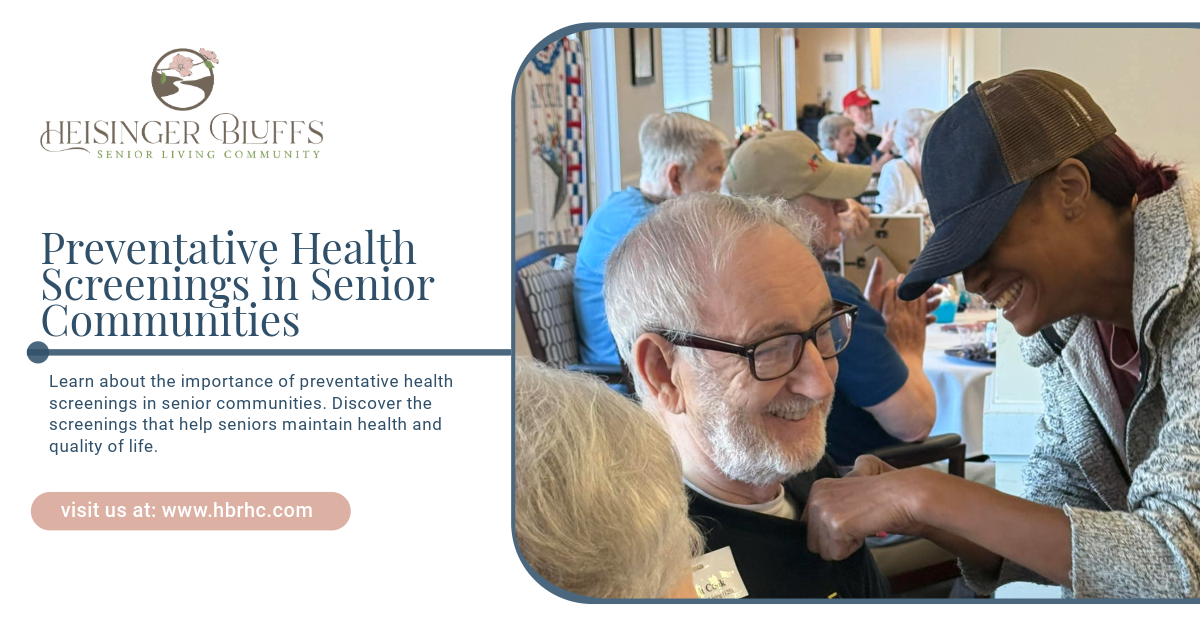Talking to Your Doctor About Care Transitions and Lifestyle: Questions to Ask

As we grow older, it becomes increasingly important to take an active role in our healthcare journey—especially when it comes to planning for lifestyle and care transitions. Whether you're considering a move to a senior living community, recovering from an illness, or simply looking ahead to maintain your independence, starting a conversation with your doctor can make all the difference.
Your primary care physician is more than just someone who treats illnesses. They are also a trusted partner who can guide you through changes in health, function, and lifestyle. By discussing your evolving needs openly, you empower yourself to make informed decisions that support your well-being and quality of life.
This guide will walk you through how to approach your doctor about lifestyle and care transitions. We'll share the right questions to ask, how to prepare for the conversation, and what topics should be covered. Being proactive today can make tomorrow more comfortable, secure, and fulfilling.
Why Talking to Your Doctor Matters
Doctors are trained not just to diagnose and treat illnesses, but to understand the broader picture of your health—including your mobility, cognitive changes, emotional well-being, and daily living needs. They can assess whether your current living situation is still safe and supportive or if additional care may be beneficial.
These conversations also allow your doctor to coordinate with specialists, physical therapists, geriatric care managers, or senior living advisors. Their insights ensure that any care transitions are well-informed and tailored to your personal health needs.
How to Prepare for the Conversation
Preparation helps make the most of your appointment. Here are some ways to get ready:
1. Reflect on Current Challenges
Think about any daily activities that are becoming more difficult—bathing, cooking, taking medication, driving, or walking. Note any recent falls, memory lapses, or changes in mood or social interest.
2. Bring a Family Member or Trusted Friend
Another set of ears can help ensure important details aren’t missed, and a loved one can also provide helpful observations about your daily routine.
3. Make a List of Questions
Writing questions down beforehand keeps the conversation focused. Don’t worry—we’ll provide a comprehensive list shortly.
4. Update Your Medical History
Bring along any recent hospitalizations, new medications, changes in weight or appetite, or mental health concerns. These may all factor into your future care needs.
Key Questions to Ask Your Doctor
Having a list of thoughtful questions can help guide a meaningful conversation. Here are some to consider:
1. “How is my overall health, and what changes should I expect in the coming years?”
Understanding how your health may evolve can help you plan proactively. Ask about common age-related conditions and how to manage them.
2. “Am I still safe to live independently at home?”
Your doctor can assess if your current living situation meets your physical and cognitive needs. They may recommend home modifications or discuss the possibility of assisted living.
3. “What are the signs that I might need more help with daily activities?”
Talk about red flags like frequent falls, medication mismanagement, or social isolation. These can signal it’s time to consider additional care.
4. “How can I stay active and prevent decline in mobility or memory?”
Ask about physical therapy, exercise, brain health programs, and nutritional support. Preventative strategies can help maintain independence.
5. “What care options should I be considering now or in the future?”
This includes in-home care, assisted living, memory care, and skilled nursing. Ask for a rundown of what’s available and what might be most appropriate for you.
6. “What should I consider when planning for a transition to senior living?”
Your doctor can offer insight into how medical needs, social engagement, and safety should factor into your decision-making.
7. “How do I know when it’s the right time to move to a senior community?”
Discuss the physical, emotional, and practical indicators. Timing is personal, but your doctor can help you recognize when it might be necessary.
8. “Can you help me create a long-term care plan?”
Your doctor can help coordinate with specialists, recommend assessments, and provide referrals for care management or elder law planning.
9. “What documents should I have in place for future healthcare decisions?”
Advanced directives, a healthcare proxy, and a living will are important for ensuring your wishes are honored.
10. “Are there community resources or support services you recommend?”
Doctors often know about local support groups, therapy services, home care agencies, and senior centers.
Additional Topics to Explore With Your Doctor
In addition to asking questions, consider initiating conversations around these important areas:
Medication Review
Older adults are often prescribed multiple medications. Ask for a full review to reduce the risk of side effects or harmful interactions.
Fall Risk Assessment
Falls are a leading cause of injury in older adults. Your doctor can assess your balance, recommend assistive devices, or refer you to physical therapy.
Cognitive Screening
Early detection of memory issues can help with planning and interventions. Ask about regular cognitive screenings.
Mental Health Check-In
Feelings of loneliness, depression, or anxiety are common with age-related changes. Be honest about your emotional health so your doctor can offer support.
Nutrition and Weight Management
Diet affects everything from energy levels to bone strength and immune function. Ask your doctor about nutrition plans tailored for seniors.
Tips for Making the Conversation Easier
If the idea of bringing up care transitions feels awkward or emotional, you’re not alone. Here are a few strategies to ease into the discussion:
- Use a recent change as a conversation starter
Example: “Since I had that fall last month, I’ve been wondering if I need more support at home.” - Frame it around your goals
Example: “I want to stay independent for as long as possible. What can I do to make that happen?” - Bring a checklist
Doctors appreciate when patients come prepared—it shows you’re engaged and ready to partner in your care. - Ask for follow-up appointments
If you run out of time or the conversation gets emotional, it's okay to schedule another visit to continue the discussion.
The Role of Advance Planning
Talking to your doctor now—even if you’re not ready to make a move—can help avoid stress later. You’ll be better equipped to make confident decisions when the time comes. It also allows time to:
- Visit potential senior living communities
- Discuss plans with your family
- Get your financial and legal documents in order
- Access support services early
Waiting until a health crisis forces a decision often limits your options. Proactive planning puts you in control.
When a Doctor Recommends a Transition
Sometimes, a doctor may initiate the conversation about changing your care setting. This might be due to:
- Frequent ER visits or hospitalizations
- Decline in physical or cognitive function
- Safety concerns at home
- Increased caregiver stress or burnout
If your doctor recommends a transition, ask for specific reasons, and request referrals to senior living communities or geriatric care managers. They can help match you with the right environment based on your health, personality, and preferences.
Support for Caregivers and Loved Ones
Family members often play a central role in care decisions. Encourage your loved ones to attend appointments and ask questions of their own. Caregivers may also benefit from:
- Resources to avoid burnout
- Support groups and respite services
- Guidance from medical professionals on how to help
Open communication between your doctor, you, and your family ensures everyone is on the same page.
A Partner in the Transition Process
While lifestyle transitions can feel overwhelming, they are also opportunities to improve safety, connection, and quality of life. By discussing these changes early and often with your doctor, you give yourself the gift of preparation, peace of mind, and control over your future.
At Heisinger Bluffs, we understand that each person’s journey is unique. We offer a full continuum of care—from independent living to skilled nursing—in a supportive, vibrant community. If you’re considering a transition or would like to learn more about our personalized approach, we’re here to help.
Frequently Asked Questions
When should I start talking to my doctor about senior living options?
It’s never too early to start. Talking with your doctor while you’re still relatively independent gives you time to plan and explore options comfortably.
What if my doctor doesn’t bring up care transitions—should I?
Yes! Doctors may wait for patients or families to initiate the topic. Your well-being is a team effort, and your doctor will welcome your proactive approach.
How do I involve my family in the conversation with my doctor?
Bring a loved one to your appointment or ask your doctor to schedule a family meeting. Open communication helps ensure everyone understands the care plan.
Sources:
- https://www.nia.nih.gov/health/brain-health/cognitive-health-and-older-adults
- https://www.who.int/news-room/fact-sheets/detail/mental-health-of-older-adults
- https://www.ncoa.org/article/the-top-10-most-common-chronic-conditions-in-older-adults/
- https://www.myplate.gov/life-stages/older-adults
- https://www.cdc.gov/falls/data-research/index.html











